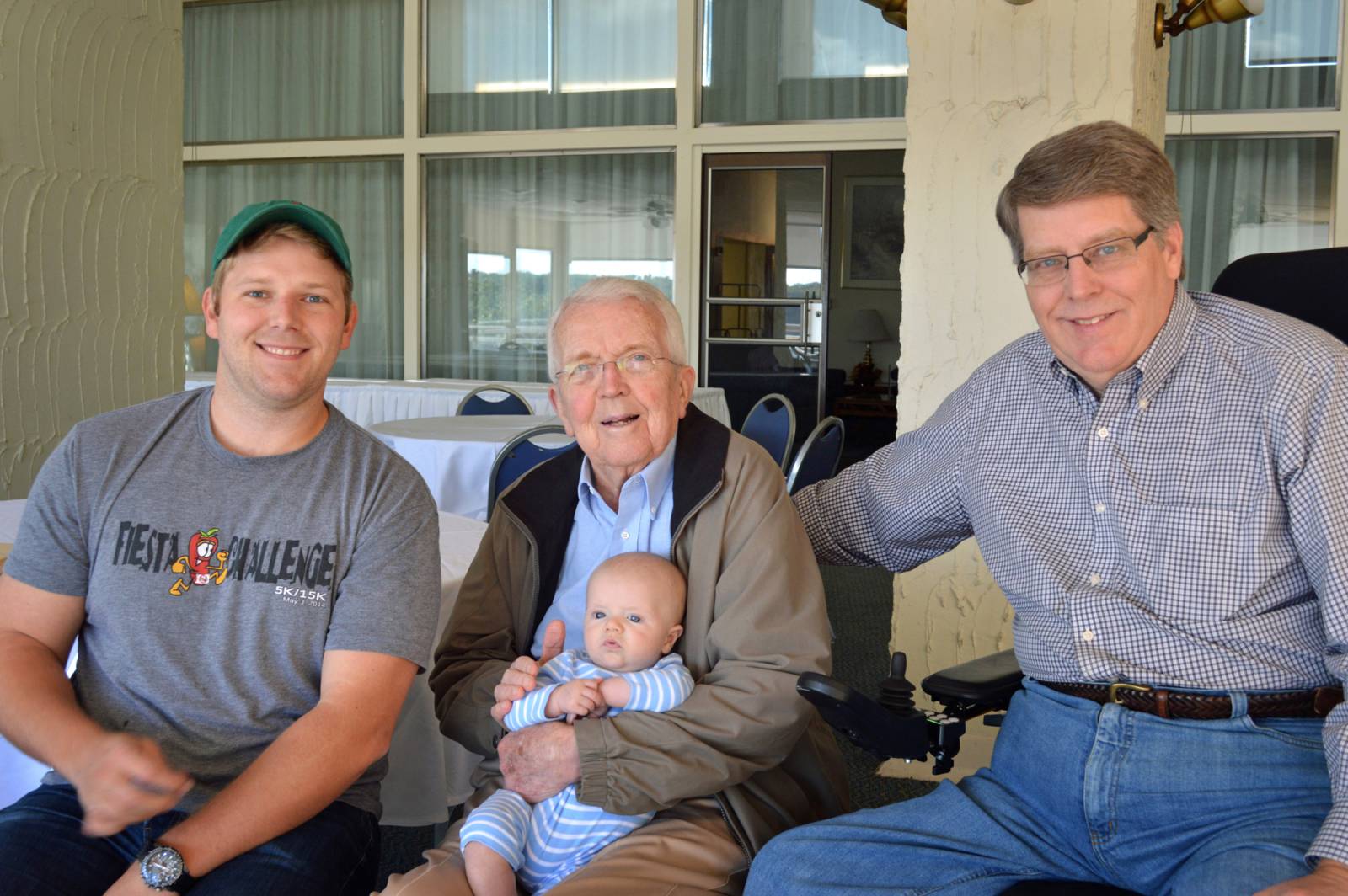By Jim Burton
ATLANTA (BP) — On a Thursday night in May 1944, my father, James “Jimmy” Warren Burton, delivered the valedictorian address on the topic of citizenship at the Owensboro High School commencement in Kentucky.
“However grave the crises of the future may be,” he said, “our country will pass safely through them if at all times it has the support of citizens who are loyal and intelligent and who are skilled in the arts of democratic citizenship.”
The next day, like scores of other 18-year-olds, he practiced his citizenship by boarding a train for basic training in the Army Air Corps.
His destination eventually was Burma, via India, and China where he would serve as a cryptographer encoding and decoding messages for air base commanders. This only child was soon living in tents surrounded by mosquito nets in a land where he knew no one from home.
When he eventually returned to Owensboro, the bus arrived early one morning and he took a taxi home without calling his parents. As he looked through the front door, he could see his mother stirring around. After knocking, she asked who was there. “It’s me,” Dad said, at which point she slung open the front door and ran through the screen door to hug him.
My family’s stories are fresh to me this year since my father passed away Jan. 7. Our family has since gone through boxes of memorabilia to find treasures that might not mean anything to others, but they are gold to us.
In his letters to home from the war, he showed respect and concern for his parents, telling them not to send money or food because he was doing fine. He reported on chapel services he attended and the number of professions of faith.
His parents had begun pressing him on a college decision, which he had not made yet. But he was thankful for the new GI Bill, which would provide him $65 per month to attend college.
His war experience was a defining aspect of his life. But before he was in the military, another organization shaped him — Royal Ambassadors (RA), the Southern Baptist missions education ministry for boys.
My father’s RA chapter at First Baptist Church in Owensboro provided the context for him to grow in his Christian faith and knowledge of missions. As a boy, he learned about the Cooperative Program — Southern Baptists’ method for mission support — and remained loyal to it his entire life. Many of the ministry’s objectives remain today, but advancement was markedly different. He attained the highest honor possible for an RA — “ambassador extraordinary plenipotentiary,” which the Kentucky Baptist Western Recorder recognized with an article and photograph.
My father continued throughout life as an ambassador for Christ.
When my parents married in 1953, they joined a church plant, Lewis Lane Baptist Church in Owensboro, and poured themselves into the church. Dad was a deacon, active in visitation, and taught Sunday School for 13-year-old boys. In 1965, our family moved to Madisonville, Ky., and joined First Baptist Church where he remained a loyal member and regular attender until shortly before his death at age 89.
Dad worked as a civil engineer for Kentucky’s Department of Transportation for nearly 44 years after earning his degree from Auburn University.
Born in 1926, he was a child of the depression who could still recall the hardships his parents faced. When the stock market crashed in October 1929, he was living in Owensboro with his parents at 102 W. 20th St.
When my grandfather lost his job, the family rented out their house and returned to his mother’s family farm in Smithland, Ky. They stayed there three years before returning to their home in Owensboro.
My younger brother and I saw evidence of the Depression’s hardships in how our dad handled his money. He was tight, rarely spending money on himself. There were no vacations to Florida, though he did relent and agreed for the family to spend a few days one summer at Kentucky Lake.
I don’t care about what I might have missed as my father pinched pennies. What matters is that he provided a secure and safe environment for his wife and children. There was no violence, profanity or abusive behavior. My father lived with a Christ-like concern for all people, particularly his family.
I spent much of my adult life in adult mission education through the former Brotherhood Commission and North American Mission Board. While serving as the director of Men’s Ministries, I heard many men tell horrific stories of hurt and abuse from their fathers, most related to alcohol abuse. Those stories were foreign to me.
This Father’s Day will be the first without him. We are certainly not the only family to experience this loss. I still want to call him most nights to talk. Then I catch myself and realize once again that he’s gone. But good memories flood those spaces and keep me going. I loved you, Dad. And I always will.
Jim Burton is a photojournalist and writer based in Atlanta. He served 25 years with the Brotherhood Commission and North American Mission Board in missions education and volunteer mobilizations.




